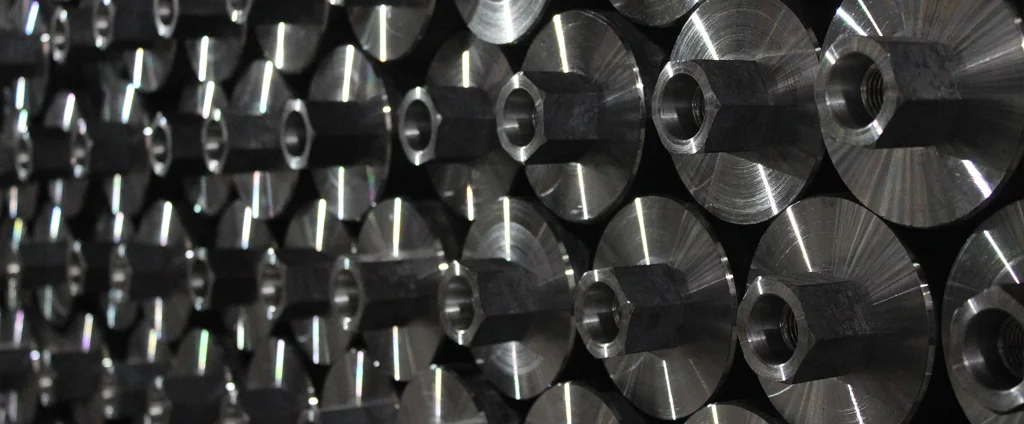SAE/AISI 1059 Carbon Steel (UNS G10590)

SAE/AISI 1059 carbon steel is a medium-carbon alloy known for its balance of strength, toughness, and wear resistance. It is widely used in mechanical components such as shafts, gears, and axles, where durability and moderate machinability are essential.
| Chemical Composition | ||
|---|---|---|
| Element | Min | Max |
| Iron | 98.46% | 98.95% |
| Carbon | 0.55% | 0.65% |
| Manganese | 0.50% | 0.80% |
| Phosphorous | —— | 0.04% |
| Sulfur | —— | 0.05% |
The following table provides a list of SAE/AISI 1059 properties in both SI and US customary/Imperial units.
Click on the button to switch between Metric and Imperial units.
| Physical Properties | Metric |
|---|---|
| Density | 7870 kg/m3 |
| Mechanical Properties | Metric |
| Young’s Modulus (E) | 190 - 210 GPa |
| Bulk Modulus (K) | 140 GPa |
| Shear Modulus (G) | 80 GPa |
| Poisson’s Ratio (ν) | 0.27 - 0.30 |
| Thermal Properties | Metric |
| Thermal Conductivity | 52 W/m·K |
| Specific Heat Capacity (Cp) | 470 J/kg·K |
| Coefficient of Thermal Expansion (αL) | 1.15×10-5 1/°C |
The values in this table are approximate and can vary depending on various factors such as the specific manufacturing process and heat treatment applied to the alloy.
Advantages & Disadvantages of 1059 Carbon Steel
| Advantages | Disadvantages |
|---|---|
| Good strength | Limited corrosion resistance |
| Good wear resistance | Lower toughness at low temperatures |
| Good machinability | Limited hardenability |
| Cost-effective |
Applications of 1059 Carbon Steel
SAE/AISI 1059 carbon steel serves in a wide range of mechanical and structural applications where strength, durability, and affordability are important, including:
- Shafts and Axles: Its moderate strength and good toughness make it suitable for use in shafts and axles in machinery, vehicles, and equipment.
- Gears: The wear resistance and machinability make it a suitable material for gears and gear components that are subjected to moderate loads and wear.
- Springs: It can be used for manufacturing coil springs, flat springs, and other spring components where a combination of strength and resilience is necessary.
- Bolts, Nuts, and Fasteners: Carbon steels of this type are often used in the production of bolts, nuts, and fasteners due to their good strength and ease of machining.
- Hand Tools: Carbon steel grades like this are commonly employed in the production of hand tools such as wrenches, pliers, hammers, and screwdrivers.
- Agricultural Equipment: Components in agricultural machinery, such as tillage equipment, harvesters, and tractors, benefit from its moderate strength and affordability.
- General Machinery Parts: Various parts of machinery, including brackets, levers, connecting rods, and structural components, can be manufactured from this material.
- Construction and Infrastructure: It can be used in the construction industry for structural supports, brackets, and other components where moderate strength is required.
